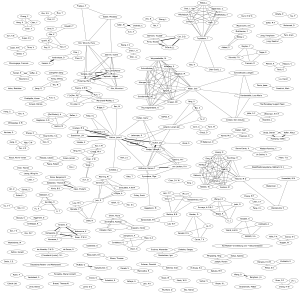One of the few things everybody seems to agree on is that the scientific review process, especially for computer science, is broken. I wont go into details here as there are many sources on the net.
But personally I found Yann LeCun’s pamphlets for “A New Publishing Model in Computer Science” inspiring. He proposes an open, karma-based online repository which I will summarize as follows:
- In this system authors post their papers as soon as they feel, that there finished. The publication is put under version control and is immediately citable.
- “Reviewing Entities” (RE), individuals or groups like editorial boards, then choose papers they want to review or accept review requests from authors.
- REs do not “own” papers exclusively, so RE can choose to review any paper at any time. Papers can be reviewed by multiple REs.
- The reviews are published with the paper and are themselves citable documents like regular publications.
- Reviews are furthermore rated by readers. Good reviews will generate “karma” points for the RE, to show the usefulness of their review.
- Additionally RE’s “karma” will increase if they are the first to positively review a paper which is than later rated as high quality by other REs as well. As a result RE will have an incentive to be the first to review good papers.
I will not repeat LeCun’s explanations on how it works in detail and why it would be superior to the existing system. Instead I want to point out how very similar this approach is to the Stack Exchange (SE) QA websites. Stack Exchange is a network of over 70 Q&A websites, with stackoverflow.com, a Q&A site on programming, being the first and largest one. On Stack Exchange websites everyone can ask questions which can be answered by all the members of the community. Both questions and answers will be rated by the community, so users are incentivized to write useful answers to questions which are relevant to many other users in order to gain reputation.
Especially if you have used a SE website, it is hard to ignore the similarities. Even though the SE framework was build to solve a different problem, I can see it being adapted to act as a repository for LeCun’s publishing model. Publications would be questions and reviews would be answers. I can only make out following necessary changes.
- There needs to support for groups (RE),
- high level users should not be permitted to change other people’s posts anymore and
- the ‘answer’ functionality has to be removed.
Everyone who follows the two founders of Stack Exchange, Jeff Atwood and Joel Spolsky, knows, how determine both are to remove all diversion of their vision for Stack Exchange, so it wouldn’t be possible to be officially part of the SE community. But there is also OSQA, the open source copy of SE. Using this service makes it seem possible to implement the necessary features.
So, what do you think? Can Stack Exchange save scientific peer review?
[UPDATE]
LeCun was so generous to comment on my article via e-mail. He confirmed that his views on the peer review process and his model haven’t changed and agrees that creating the technical infrastructure shouldn’t be too hard. He already received several offers from possible volunteers, but the project is still missing a highly competent developer(-team) to “own” the project.
Disclaimer: I am not the first one to bring Stack Exchange on the table, but I found the other approach far less concrete.

